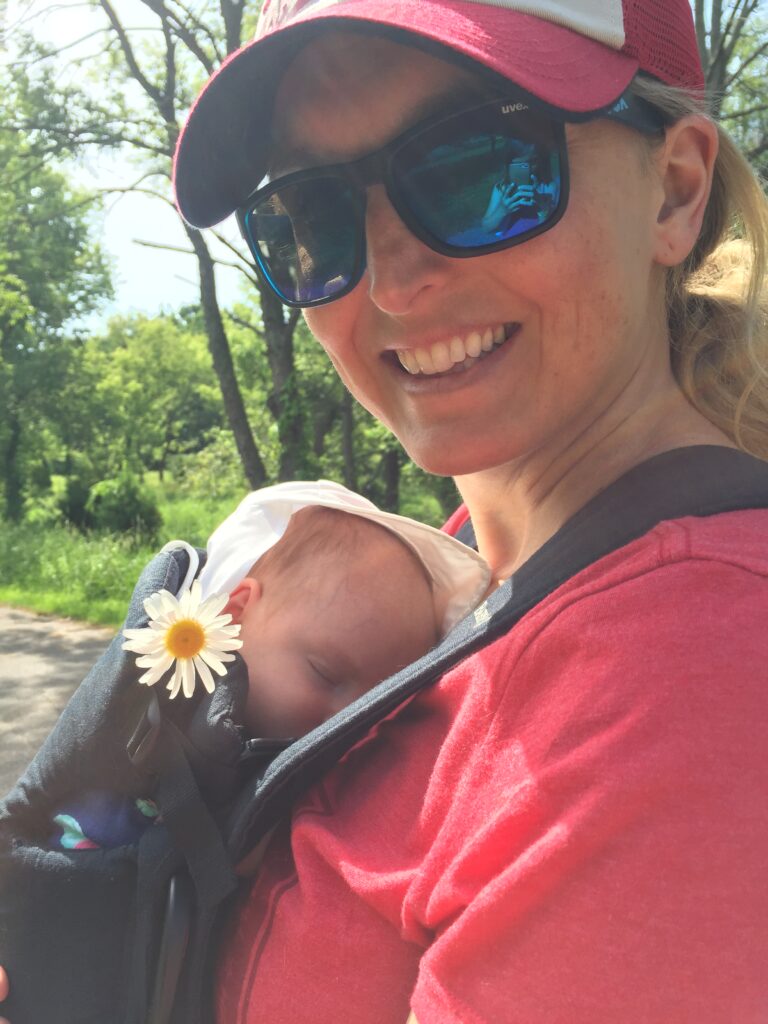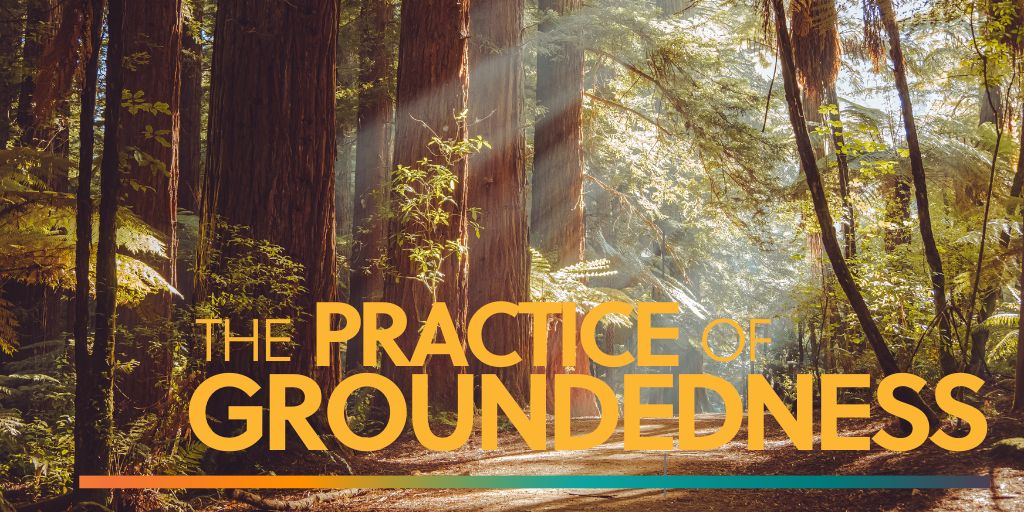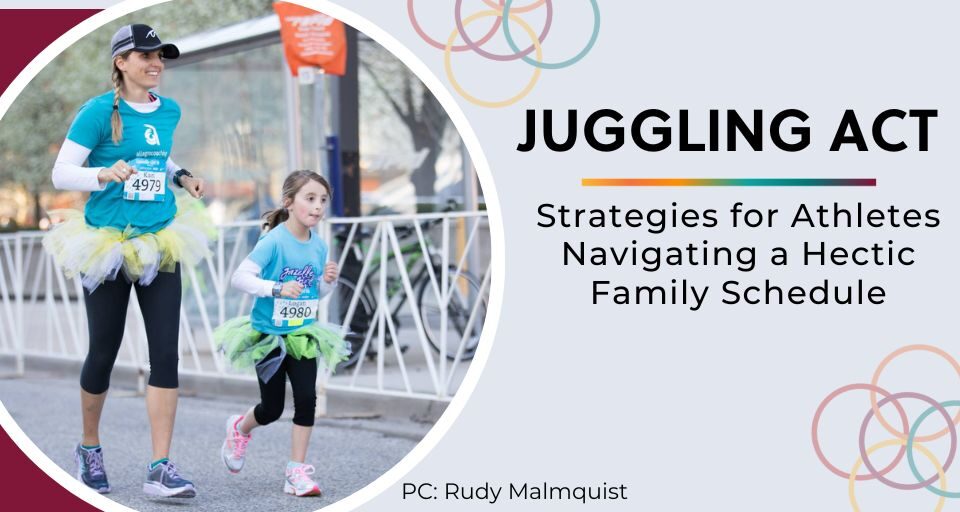
Is a Running Coach Worth It?
June 9, 2023
The Wicked Worm 12-Hour Trail Run 2023
June 22, 2023Rooted, Not Shaken: A Personal Journey Through The Practice of Groundedness
The Practice of Groundedness, by performance expert Brad Stulberg, became my unexpected audio companion on a recent road trip to Tennessee. What caught me off guard wasn’t just the fact that I had downloaded the book (I don’t even remember doing it) but the goosebumps that ran down my spine within the first five minutes of listening. It was as if the universe had sent me this message at exactly the right moment.
The book opens with Stulberg reflecting on his life. In 2017, at 31 years old, he was expecting his first child, releasing his book Peak Performance, and coaching top athletes, entrepreneurs, and executives. He was riding high, but then, out of nowhere, he began to experience debilitating anxiety and panic attacks. After struggling with thoughts of suicide, he sought help and was diagnosed with pure obsessive-compulsive disorder. This form of OCD isn’t what you might expect—no compulsive hand-washing or visible behaviors—but rather relentless, intrusive thoughts filled with despair and anxiety.
When he began to describe his symptoms, it hit me hard.
Why this Hit Home
I have friends and loved ones who battle the demons of depression, anxiety, panic, and other mental illness. And I can relate on a personal level. After the birth of my youngest daughter, Cassie, I experienced postpartum depression—an experience that came with many of the same overwhelming symptoms Stulberg describes.
 My PPD presented itself as pure OCD – obsessive thoughts about hurting her. Of course, I KNEW I loved her with the depths of my soul, and that I could not hurt my children. We had prayed for a baby for years, so the idea of hurting her was ludicrous, but for some reason, these thoughts ran through my head constantly. It was terrifying. I felt like I was going crazy, but I was too afraid to say anything.
My PPD presented itself as pure OCD – obsessive thoughts about hurting her. Of course, I KNEW I loved her with the depths of my soul, and that I could not hurt my children. We had prayed for a baby for years, so the idea of hurting her was ludicrous, but for some reason, these thoughts ran through my head constantly. It was terrifying. I felt like I was going crazy, but I was too afraid to say anything.
What we push down inside grows
Finally, after about 6 months of torment, I broke down to Ben and let him know. In tears, I told him everything. I questioned whether it was okay to leave her alone with me. I couldn’t stop these thoughts.
Just saying the words lifted some of the weight that was crushing me. Ben comforted me, he held me tight and let me cry and vent. He reminded me about what a loving mother I am. And he encouraged me to get help.
I felt so much better after telling Ben my story, so I opened up to my friends, physician, and family – who all had the same reaction. They just loved me and reminded me of who I was. Each conversation lifted the weight. My family doctor said, “Mama, you’re going to be okay. Cassie is going to be okay. You’re experiencing a form of OCD and it’s not uncommon”. He suggested I get therapy.
Cassie is now 4 years old. I am incredibly fortunate that the thoughts eventually faded from my mind soon after seeking help. Simply opening up, accepting my experiences rather than hiding from them, leaning into my community, and reminding myself who I am was the help I needed.
That’s the essence of grounding. At the time, I didn’t realize I needed it, but the practice became a lifeline. And that’s exactly what The Practice of Groundedness explores.
Click here to purchase The Practice of Groundedness on Amazon
Success without Sacrifice
I started listening to the audiobook with the intent of gaining insights for my coaching practice—I wasn’t expecting a trip down memory lane. But maybe that’s exactly the point. Understanding the struggles of athletes on a personal level is what transforms a good coach into a great one. Here’s how The Practice of Groundedness applies to others.
This isn’t a book about mental health—but Stulberg’s personal story resonated with me. His experience is just a small piece of a larger message. This book is for those striving for success without letting it consume them.
Do any of these feelings sound familiar?
- Whoever you are and whatever you do, it’s never enough.
You have a gut feeling that something isn’t right, but you can’t figure out what it is or what to do about it.
Too many commitments pile up at a fast pace and under tremendous pressure, leaving you feeling scattered, rushed, or exhausted — as if life keeps swirling from one thing to the next.
Being busy becomes the norm, yet open time makes you restless, and relaxing triggers guilt because it feels like stepping away from your goals.
High standards sit impossibly high, and you often fixate on the gap between where you are and where you want to be.
- The need to be better, do better, feel better – but no idea how to start. But also a struggle to be content.
- OR -however far you go, you still haven’t arrived, but if you just pushed a little harder, you’d get what you wanted.
Stulberg calls this mindset heroic individualism—the relentless pursuit of being more productive, optimized, and successful. Grind, grind, grind.
But under the weight of heroic individualism, many people eventually face burnout and dissatisfaction. For some, like Stulberg, it can even lead to serious mental health struggles.
His turning point came during a walk through a redwood forest. As he admired the towering canopy hundreds of feet above, he realized that the trees’ strength didn’t come from deep roots—it came from wide ones. Beneath the surface, their roots intertwine, supporting each other in unseen ways.
The lesson was clear: true resilience comes from strengthening your roots—the principles and practices that keep you grounded. Heroic individualism focuses only on the canopy (external achievements), ignoring the foundation beneath, and leaving us vulnerable to life’s storms.
The Principals of Groundedness
Drawing from both ancient wisdom and modern science, The Practice of Groundedness outlines six principles of a more balanced way of living:
- Accept your present circumstance. You are where you are now, not where you think you should be.
- Stay present.
- Be patient with your progress. Sometimes the best way to get something done is to let it happen at it’s own pace.
- Allow yourself to be vulnerable.
- Embrace community.
- Keep your body moving. The more you move, the signals your body is sending.
Looking back on my own experience, it’s almost eerie how these principles mirror what helped me through postpartum depression—long before this book was written. Seeing them laid out so clearly reinforces their power.
Accept Where You Are to Get You Where You Want to Go.
Seeing clearly and starting where you are. Not where you want to be. Not where you think you should be. Not where others think you should be. But where you are. This is hard—but the only way to make meaningful progress.
Be Patient and You’ll Get There Faster.
Give things time and space to unfold. Do not expect instant results and then quit when they don’t occur. We often do things quickly—not better— to gain time. But what's the point if in the time we gain we just do more things quickly?
Build Deep Community.
Roots of massive redwoods only run 6 to 12 feet deep. Instead of deep, they grow out, extending hundreds of feet laterally, wrapping around other trees' roots, helping each other stand firmly in the ground amidst rough weather. This is a model for us, too.
Be Present So You Can Own Your Attention and Energy.
Being present, physically and mentally, for what is in front of you. Spending more time fully in this life, not in thoughts about the past or future. Happiness, wellbeing, and peak performance come from being in the moment.
Embrace Vulnerability to Develop Genuine Strength and Confidence.
Being real with yourself and others, at work and in life. Eliminating cognitive dissonance, or the inner turmoil and distress that arises when too much of your life is performative. Coming to know all of yourself.
Move Your Body to Ground Your Mind.
Regularly moving your body so that you fully inhabit it, connect it to your mind, and become more situated wherever you are. Doesn’t mean you must be an athlete. It just means to make movement a part of your life, even if only in a small way.
Bringing It All Together
The message of The Practice of Groundedness is clear: lasting success isn’t about constant optimization or grinding harder—it’s about building a strong foundation. The book also offers practical strategies drawn from ancient Zen philosophy and modern therapies like dialectical behavioral therapy (DBT) and acceptance and commitment therapy (ACT). I’m excited to apply these ideas more intentionally in my own life, as well as in my coaching and with my family.



